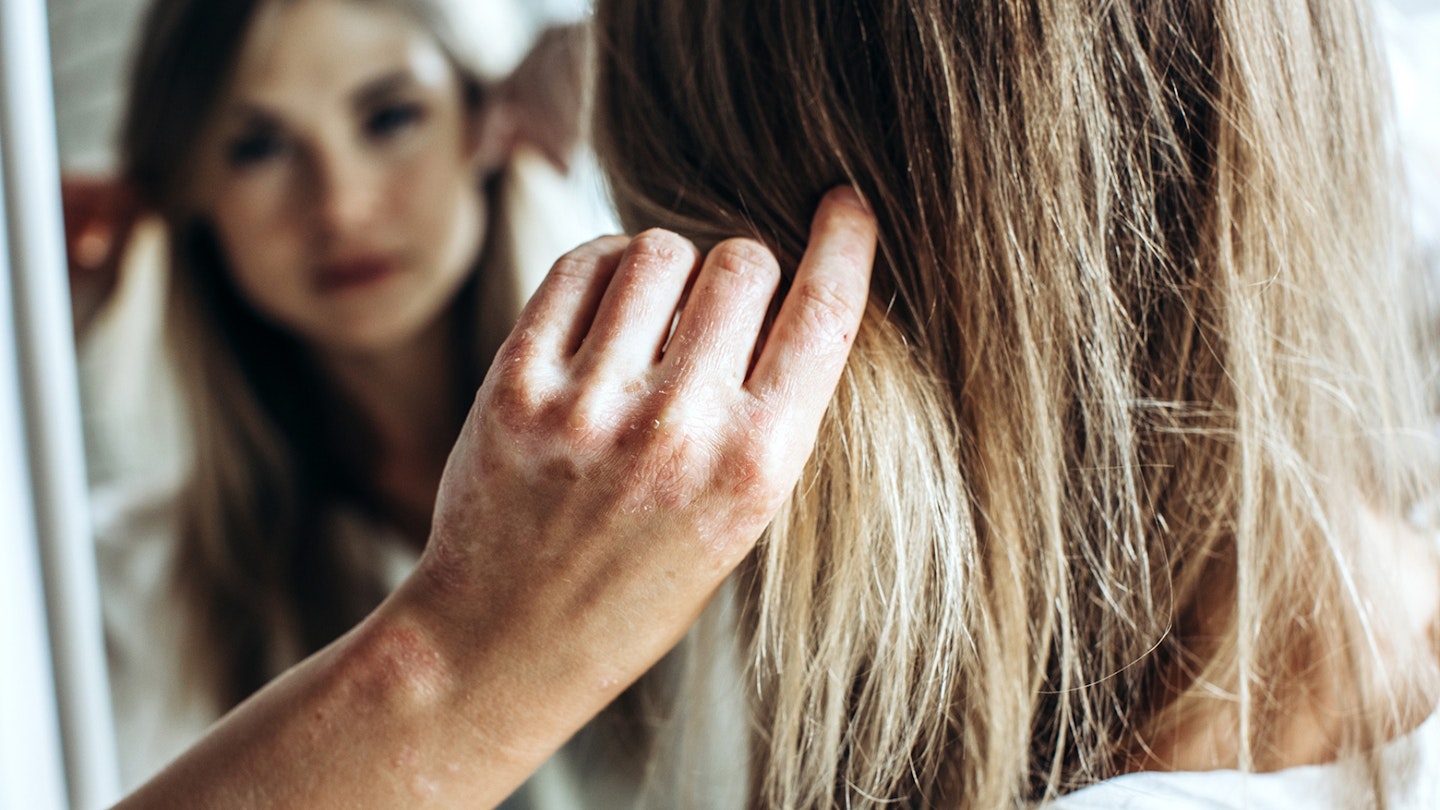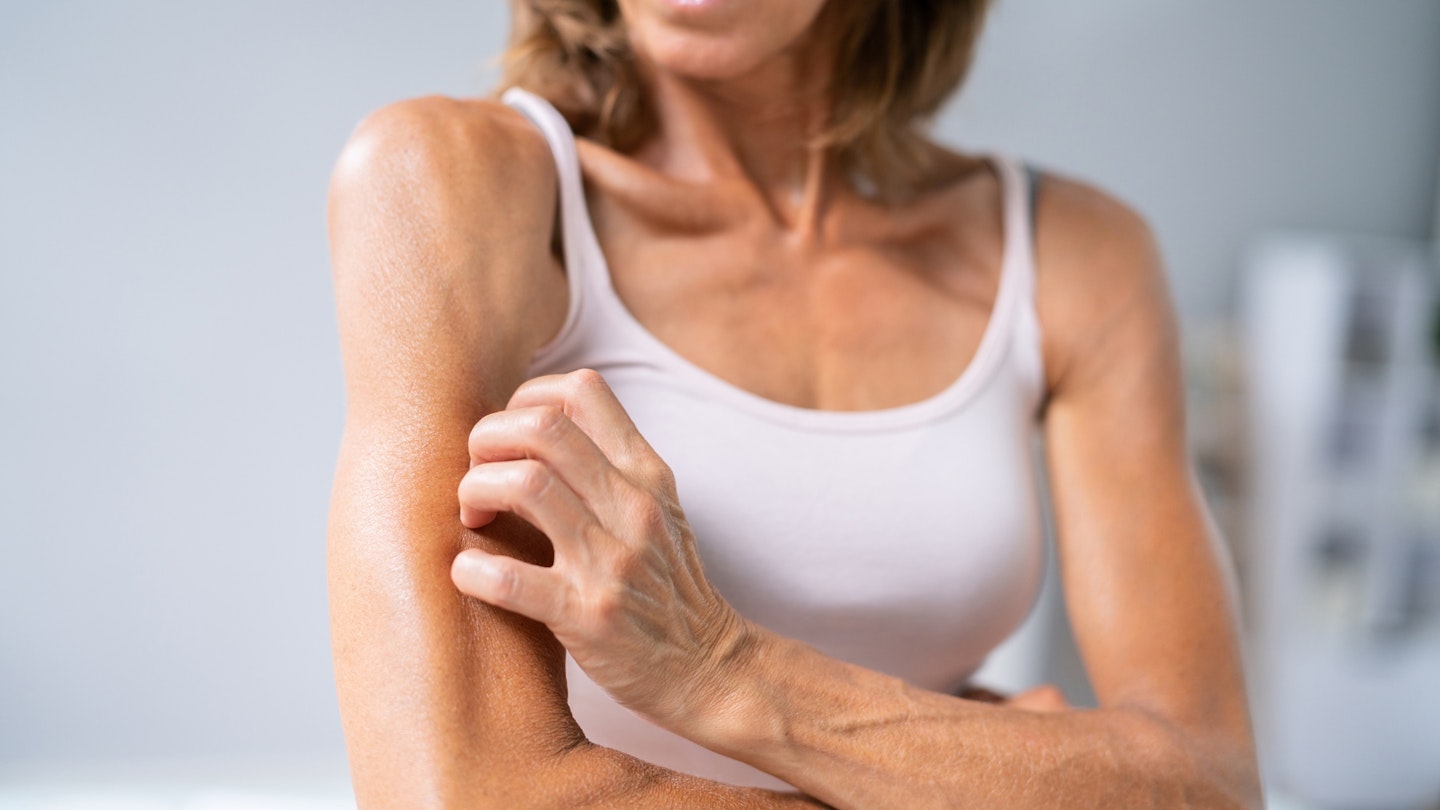Psoriasis can strike at any age, but onset peaks in two age groups – for those in their 20s and then again in between the ages of 50 and 60. Unlike eczema, which is an umbrella term for a group of conditions that cause the skin to become itchy and inflamed, psoriasis is an autoimmune condition. ‘Psoriasis cannot be prevented. It comes in many forms and leaves skin itchy, irritated and inflamed,’ says Dr Donald Grant, GP and senior clinical advisor at The Independent Pharmacy. ‘Signs of the condition can appear all over the body, including elbows, knees or the scalp.’
Here are some tips to understand the telltale signs, so you can quickly access medical advice or over-the-counter treatments to help.
Red patches of skin
‘Plaque psoriasis, the most common form of the skin condition, is when the skin becomes inflamed with red patches,’ says Dr Grant. ‘This normally appears on elbows, knees or the scalp, but can show up in other areas of the body. These plaques may also become dry and have a silver scaly appearance. E45 Non-greasy Emollient Cream is available over the counter and can reduce itchiness, soothing skin and leaving it smoother.’
Itching and burning
Itching and burning on skin? It could be psoriasis. ‘This sensation can come before visible changes in the skin,’ says Dr Grant. ‘It can stem from inflammation caused by the autoimmune condition. Try a cool compress to reduce burning and provide quick relief from itchiness, while medical treatments are available for long-term relief.’
Dry or cracked skin
‘Dry skin tends to show up as an early sign of this skin condition and can lead to cracking, which in turn, causes bleeding,’ says Dr Grant. ‘Regularly moisturise the affected area and seek medical advice to get more clarity on the treatments available to you. Treatments such as Diprobase Cream are effective at targeting dry or flaky skin.’
Pitted nails
‘Nail psoriasis will affect around half of those suffering from the condition,’ says Dr Grant. ‘Indicators include nail pitting, when small dents or pits form on the surface of fingernails or toenails. The fragility can make nails crumble in severe cases. Pitted nails can impact work and social lives, making writing or typing challenging, while also affecting people’s confidence. Seek further advice from a GP.’
Dry or flaky scalp

Changes in the scalp, such as dry or flaky skin? ‘This is potentially scalp psoriasis,’ explains Dr Grant. ‘This is another type of plaque psoriasis which leads to patches of skin covered in scales and may even cause temporary hair loss in severe cases. Over-the-counter shampoos such as Polytar Shampoo can help to reduce dry, scaly skin while protecting against future flare-ups. The active ingredient, coal tar solution, speeds up the shedding of dead skin cells and should be used for around four weeks to reduce symptoms.’
